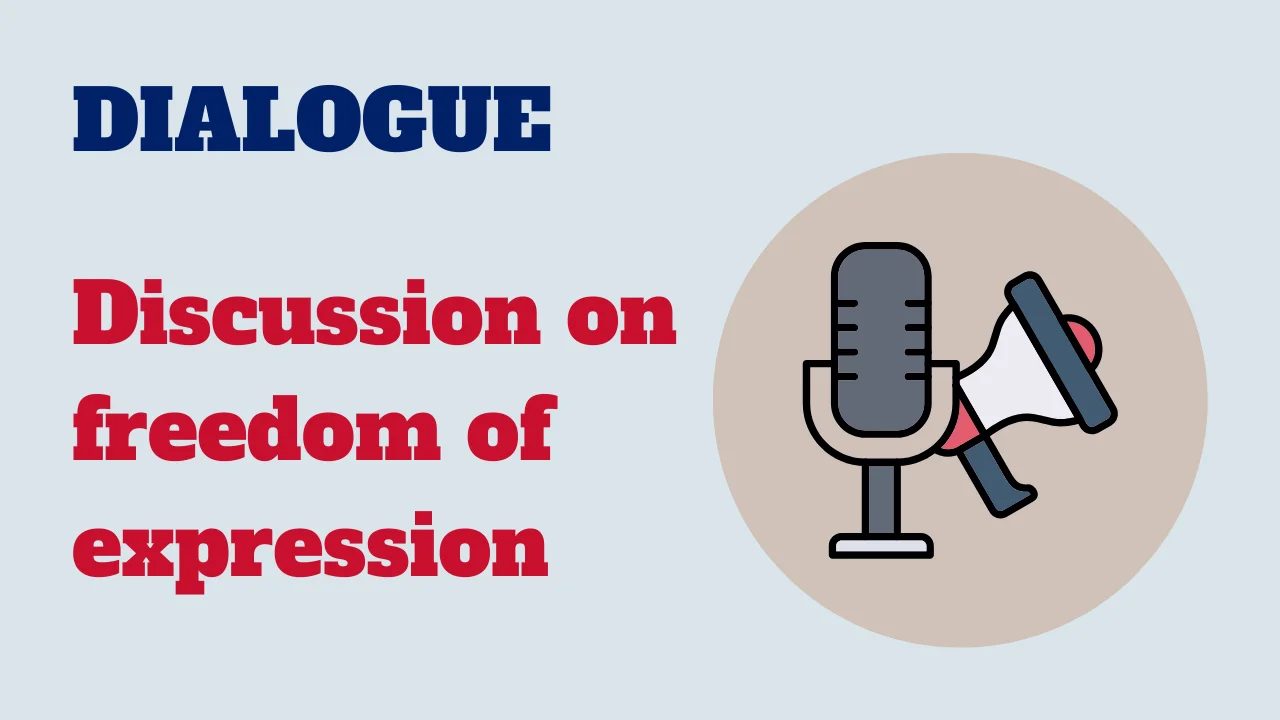Delve into the discourse surrounding freedom of expression with this dialogue. Whether discussing its significance in democratic societies or exploring its boundaries and limitations, this conversation between two individuals will help you build your vocabulary related to civil liberties and democratic principles.

Dialogue: Discussion on freedom of expression
Person 1: Hi there. I wanted to talk to you about the importance of freedom of expression in our society.
Person 2: Hi. That’s a topic that’s been on my mind lately too. It’s such a fundamental aspect of democracy and individual rights.
Person 1: Absolutely. The ability to express oneself freely, whether through speech, art, or other forms of communication, is essential for a vibrant and democratic society.
Person 2: I couldn’t agree more. It allows for the exchange of ideas, the exploration of diverse perspectives, and the challenging of established norms and beliefs.
Person 1: Indeed. However, there are also challenges and complexities when it comes to freedom of expression, especially in balancing it with other societal values such as respect, tolerance, and public order.
Person 2: That’s true. While everyone has the right to express their opinions, there are instances where speech can cause harm or incite violence. Finding the balance between protecting free speech and preventing harm can be a delicate task.
Person 1: Absolutely. Hate speech, for example, is a contentious issue. While it’s important to protect the right to express unpopular or controversial opinions, there must also be safeguards in place to prevent the spread of harmful rhetoric that targets marginalized groups.
Person 2: Agreed. It’s about finding a balance between upholding the principles of free speech and ensuring that no one’s rights or safety are compromised.
Person 1: And let’s not forget the role of responsible media and information dissemination in upholding freedom of expression. Access to accurate and diverse sources of information is crucial for an informed citizenry.
Person 2: Definitely. In today’s digital age, where information spreads rapidly and widely, it’s more important than ever to promote media literacy and critical thinking skills to discern fact from fiction and navigate the complexities of online discourse.
Person 1: Absolutely. It’s clear that freedom of expression is a multifaceted and dynamic concept that requires ongoing dialogue and vigilance to uphold its principles while addressing its challenges.
Person 2: Agreed. It’s a cornerstone of democracy and individual liberty that must be safeguarded and nurtured for the well-being of society as a whole.
Explore the nuances of freedom of expression with this dialogue. Practice your English language skills while discussing its importance, challenges, and complexities in democratic societies. Whether reflecting on its role in promoting diverse perspectives or considering its limitations in the face of harmful speech, this conversation provides a practical scenario for language learners to engage in discussions on civil liberties and democratic principles.



